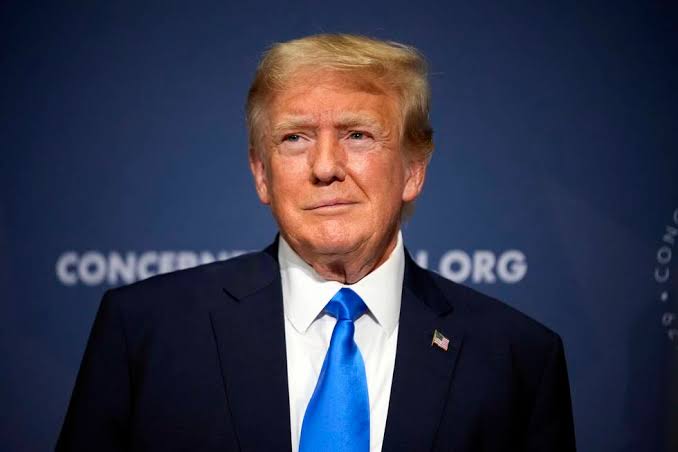Trump says First Amendment protects him from ‘insurrection’ cases

Attorneys for former President Donald Trump argue that an attempt to bar him from the 2024 ballot under a rarely used “insurrection” clause of the Constitution should be dismissed as a violation of his freedom of speech.
The lawyers made the argument in a filing posted Monday by a Colorado court in one of the most significant of a series of challenges to Trump’s candidacy under the Civil War-era clause in the 14th Amendment. The challenges rest on Trump’s attempts to overturn his 2020 loss to Democrat Joe Biden and his role leading up to the violent Jan. 6, 2021, attack on the U.S. Capitol.
“At no time do Petitioners argue that President Trump did anything other than engage in either speaking or refusing to speak for their argument that he engaged in the purported insurrection,” wrote attorney Geoffrey Blue.
Trump also will argue that the clause doesn’t apply to him because “the Fourteenth Amendment applies to one who ‘engaged in insurrection or rebellion,’ not one who only ‘instigated’ any action,” Blue wrote.
The former president’s lawyers also said the challenge should be dismissed because he is not yet a candidate under the meaning of Colorado election law, which they contend isn’t intended to settle constitutional disputes.
The motion under Colorado’s anti-SLAPP law, which shields people from lawsuits that harass them for behaviour protected by the First Amendment, will be the first of the 14th Amendment challenges filed in multiple states to be considered in open court. It was filed late Friday and posted by the court Monday.
Denver District Judge Sarah B. Wallace has scheduled a hearing on the motion for Oct. 13. A hearing on the constitutional issues will come on Oct. 30.
Whatever Wallace rules, the issue is likely to reach the U.S. Supreme Court, which has never heard a case on the provision of the 14th Amendment, which was ratified in 1868, three years after the Civil War ended. The clause has only been used a handful of times.
The Colorado challenge stands out because it was the first filed by an organization with significant legal resources, in this case a liberal group called Citizens for Responsibility and Ethics in Washington. A second liberal group, Free Speech For The People, has also filed a challenge to Trump’s candidacy in Minnesota that is scheduled to be heard by that state’s high court on Nov. 2.
Section Three of the amendment bars from office anyone who once took an oath to uphold the Constitution but then “engaged” in “insurrection or rebellion” against it. Its initial intent was to prevent former Confederate officials from becoming members of Congress and taking over the government.
Trump’s contention that he is protected by freedom of speech mirrors his defense in criminal cases charging him for his role in the Jan. 6 attack. There, too, he argues he was simply trying to bring attention to what he believed was an improper election — even though dozens of lawsuits challenging the results had already been rejected.
Prosecutors in those cases and some legal experts have noted that Trump’s offenses go beyond speech, to acts such as trying to organize slates of fake electors that Congress could have recognized to make him president again.
The criminal cases have already bled into the 14th Amendment challenge in Colorado. On Friday, Wallace issued an order barring threats and intimidation in the case after the plaintiffs noted that Trump has targeted lawyers and witnesses in the criminal proceedings against him.



